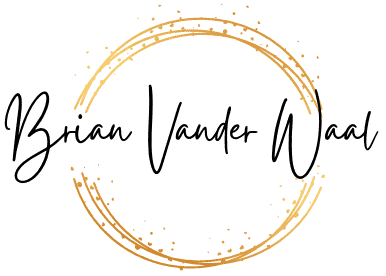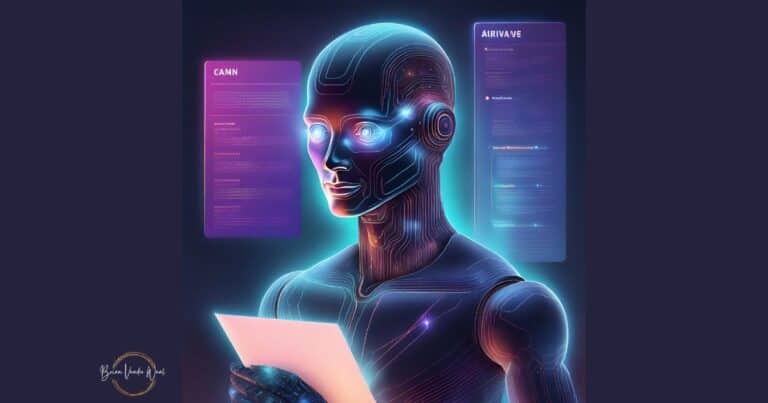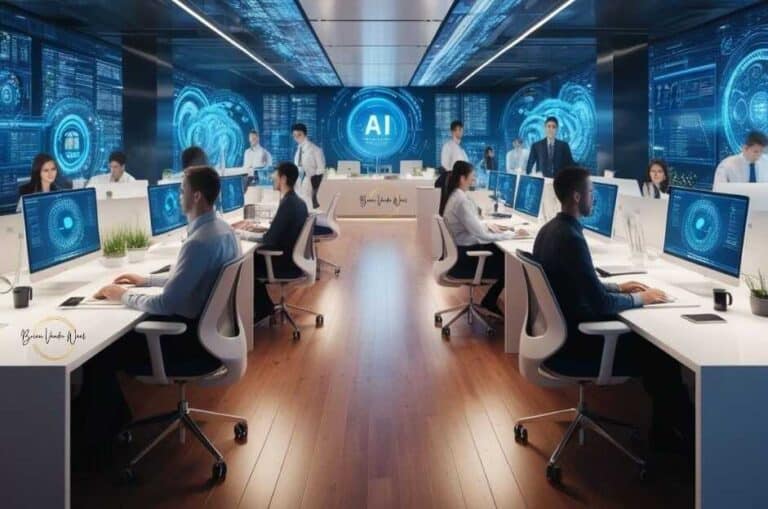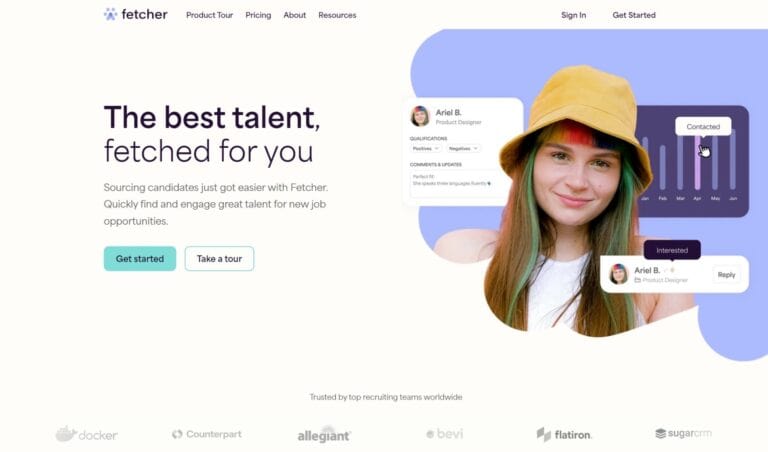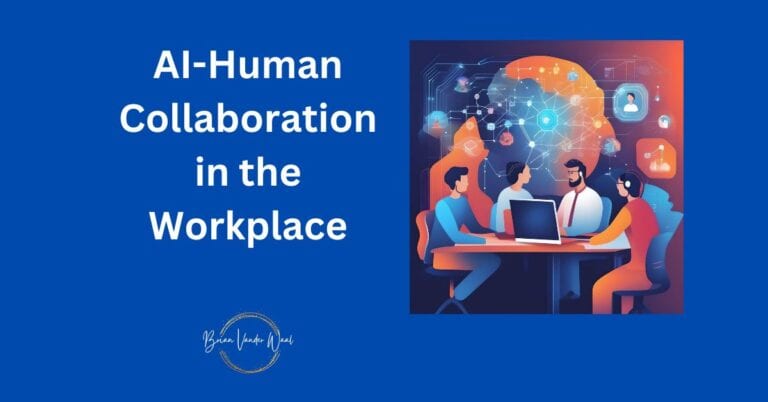Are you wondering what is the future of AI-powered job search beyond 2026? If so, you are in good company. Many of my clients are curious, and some are apprehensive about what AI means for their job hunt.
Common questions I have been asked include:
- Will AI tools make my job search harder?
- Will my job applications be judged solely by algorithms?
These are valid questions.
After more than 19 years in career coaching, helping countless individuals like you navigate the often-tricky job market, I’ve witnessed some seismic shifts. But the current wave, driven by Artificial Intelligence (AI), is reshaping job search in ways we’re only beginning to grasp. This isn’t just another fleeting trend. Integrating AI into recruitment and job search processes is here to stay. It will profoundly impact the future of work and job seeking.
By 2030, it’s projected that three-quarters of recruiters will be using automation in their hiring processes (QX Global Group). At the same time, around 65% of job seekers are already relying on AI tools to apply for jobs, a figure that some experts expect could rise to 90% by the end of the decade (Raconteur).
My aim is to demystify the future of AI in job search. We’ll explore how advanced AI job search tools are set to transform your experience well into the future. More importantly, we’ll look at how you can leverage AI to secure employment. I will share what I’m seeing on the frontlines of career coaching, help you understand these changes and prepare for what’s next.
Key Takeaways
- AI will become your career co-pilot. By 2028, using AI in your job search will be as essential as having a CV. AI won’t just help, it will guide, personalise, and even plan your career with you.
- Dynamic, intelligent applications are coming. Forget static CVs. Future resumes and cover letters will reconfigure themselves in real-time to match each job, automatically and strategically.
- AI agents will do more than apply for jobs. Expect AI tools to read between the lines of job descriptions, manage applications, highlight skill gaps, and suggest tailored upskilling, all without you lifting a finger.
- Hyper-personalisation will redefine job matching. AI will match you with roles based not just on skills, but also on your values, communication style, preferred team environment, and career aspirations.
- Predictive career pathing is on the horizon. AI will help you forecast industry changes, plan career moves, and calculate your odds of success and satisfaction across different paths.
- AI will play a key role in interviews and salary negotiations. Expect hyper-realistic interview simulations and real-time salary negotiation advice powered by deep data analytics and market trends.
- Human skills are still your biggest asset. Critical thinking, emotional intelligence, creativity, and interpersonal skills will be more valuable than ever, and AI can’t replicate them.
- Relationships still matter. AI may screen your CV, but humans make the final hiring decision. Networking, rapport, and personal connection will remain vital.
- Embrace the human + AI partnership. The winners in the future job market will be those who blend intelligent use of AI tools with authentic human strengths.
- Ethics and bias still need watching. As AI becomes more embedded in hiring, staying informed on ethical issues and data fairness will be essential for job seekers and employers.
Table of Contents
The Future of AI in the Job Search Process

So, what does the future of AI in job searching look like beyond 2026? The AI tools we’re seeing now are just scratching the surface. The AI-powered job search of today, with tools such as AI resume builders, automated matching, and AI interview interview prep tools, is merely the prelude to a far more integrated and intelligent future.
Beyond 2026, expect AI to transition from a helpful tool to an indispensable, deeply embedded career co-pilot. We’re moving towards an era where AI tools for jobseekers, such as AI CV builders, aren’t just an add-on. Rather, they will be a deeply integrated part of the job search process, acting almost like a personal career strategist for every job seeker. The focus will change from simply finding the next job to architecting a fulfilling, dynamic career trajectory.
Understanding how to leverage AI tools will become absolutely essential. In fact, I predict that within three years, effective AI utilisation will be as fundamental to job hunting as having a resume or CV!
So it is important to start using the tools we have now, such as AI Resume and CV builders, AI Cover Letter Generators, AI interview prep tools and other AI tools for job seekers. Testing them out and gaining experience with these tools will help you as we move towards AI’s full integration into the job search process. If you are sceptical (like me and many of my clients were in the past), I encourage you to read the research I conducted on whether AI can write my CV.
Future Innovations: A Glimpse into Tomorrow’s AI Toolkit
Looking ahead, the capabilities of Artificial Intelligence in job search will expand dramatically. Imagine AI tools that don’t just suggest jobs but actively predict emerging job market trends and entirely new roles before they become mainstream. That’s a serious advantage for any job seeker!
We’ll see the rise of truly dynamic application materials. Resumes, CVs, cover letters, and even digital portfolios that intelligently reconfigure themselves in real-time to perfectly match the nuanced requirements and cultural markers of each specific opportunity. This technology will go far beyond the simple keyword optimisation abilities in AI tools today.
Dynamic application documents will present your best self in the most relevant way for each job application. This will be a tremendous boost for anyone who has struggled with tailoring their cover letter for multiple roles.
This level of sophistication will make the job application process feel less like a repetitive chore and more like a series of highly targeted, intelligent engagements.
Advanced AI Job Hunting Agents: Your Personal Career Navigator
The concept of AI job-hunting agents will also mature significantly. Today, some AI tools can proactively search job postings, filter them, and even apply for jobs automatically.
Currently, AI can also help you identify precisely which skills are in the highest demand across industries. This focuses your job search on positions where you’re most competitive. Moreover, it highlights the best areas for career development.
For example, I used AI tools with a client to analyse hundreds of job postings in her field. We discovered a specific certification that appeared in 73% of senior-level roles. As a result, she’s now pursuing that qualification and positioning herself for promotion.
Beyond 2025, these agents will be much more sophisticated. They’ll perform a deep analysis of job roles, understanding not just the written job description but also the unstated needs. They’ll manage your job application process, learning from each interaction and refining strategies.
These AI systems will likely identify your skill gaps for a specific job and suggest relevant training, almost like a personal mentor.
Hyper-Personalisation
While personalisation is a current buzzword, the future holds hyper-personalisation at an unprecedented scale. Hyper-personalisation will become the norm in your AI job search.
Future AI will go beyond just job matching based on skills and experience. It will strive to understand your career goals, core values, preferred work environment, ideal team dynamics, communication style, and even the company culture you thrive in.
This means the job recommendations you receive won’t just be about technical fit but also genuine alignment, increasing your chances of long-term satisfaction. The AI will filter out roles that, while superficially attractive, might lead to burnout or dissatisfaction. It will learn what makes you tick.
Predictive Career Pathing: Charting Your Professional Destiny
Furthermore, AI will offer powerful predictive career pathing. Imagine AI systems that can:
- Suggest potential career paths for you based on your unique profile, considering market demands.
- Highlight the skills, experiences, and network connections needed for each path.
- Provide probability scores for success and satisfaction.
- Forecast potential earnings
- Identify similar careers or emerging specialisations you may not have considered, offering a roadmap to pivot effectively.
- Proactively alert you to shifts in your industry that might impact your current role or future plans, suggesting preemptive upskilling or strategic moves.
Proactive career planning, powered by AI, will be a world away from the more reactive traditional job search. You’ll be able to use AI tools to not only find your next job, but also strategically plan your entire career.
AI in the Job Interview
Even the job interview itself will see changes due to AI. We already see AI interview prep tools that simulate interviews and provide feedback.
Expect these interview simulations to become incredibly realistic, helping you prepare for tough job interview questions and better understand a hiring manager’s expectations. They will be able to provide nuanced feedback on everything from critical thinking to emotional resonance.
AI in Salary Negotiation
In the future, AI might even help negotiate your salary. AI will likely be able to:
- Analyse comprehensive market data, company financial health, and even anonymised negotiation histories to determine optimal compensation packages (salary, bonuses, equity, benefits).
- Provide real-time strategic advice during negotiation conversations, suggesting responses and identifying leverage points.
- Engage in preliminary automated negotiations (with your permission) for standardised terms, freeing you to focus on higher-level discussions.
- Help you assess the total value of an offer beyond salary, including factors like work-life balance provisions, learning opportunities, and career advancement potential, all weighed against your personalised priorities.
This use of AI aims to level the playing field for every job seeker. The job search process will continue to become more efficient and tailored as AI continues to develop. Just as AI is revolutionising workplace productivity and recruitment, it is also transforming the job search.
Leverage AI + Human Skills = Success

AI-powered job search tools are incredibly exciting, but we must adapt our approach as they continue developing. The future of work and job-seeking requires a new mindset. It’s about understanding how to use AI effectively. It is important see AI as a powerful ally, rather than an enemy in your job search.
At the same time, while developing our skills in using AI tools, we will also need to develop the skills and qualities that only humans can bring to the table. Developing these skills and qualities will significantly affect our future success and ensure we stand out from the competition.
New Skills for the AI Era: Beyond the AI Resume and CV
While job seekers use AI for strategic career planning and to create application documents, the AI-driven job market also requires you to cultivate skills that AI can’t easily replicate. These are your human strengths: critical thinking, creativity, emotional intelligence, and complex problem-solving.
As AI systems handle more routine tasks, employers will place more value on human abilities. Modern job seekers need to focus on this. Learning to use AI tools is one part; showcasing your irreplaceable human skills is the other. This ensures you’re prepared for the rapidly changing job market.
Personal Connections Will Still be Vital in Securing Jobs
A common concern I hear from many job seekers is whether AI will completely take over the hiring process, leaving no room for human judgment. It’s a valid worry when you hear about ATS screening resumes/CVs and automated bot interactions. However, based on my experience and what I see in the industry, AI will not replace the human element in recruitment.
Instead, we’re moving toward a hybrid approach. While an AI system might be the first to ‘read’ your job application, the final decisions, especially for complex roles, will still rest with people. Your interpersonal skills, rapport-building skills and ability to communicate your passion during a job interview or networking opportunity will be even more critical.
I’ve noticed companies increasingly using AI for initial screening but putting more emphasis on personal connection during later stages. As a result, your ability to form genuine relationships becomes even more valuable once you get past the AI gatekeepers.
The Human-AI Partnership
The most successful job seekers I work with view AI as a partner rather than an obstacle. Learn how to use AI tools to improve your job applications, but don’t lose sight of what makes you uniquely human. The future belongs to those who can dance skillfully between these worlds.
Technology is just a tool. Your experience, adaptability, and authentic self remain your greatest assets. The robots may read your resume or CV first, but humans still make the final hiring decisions!
Challenges and Ethical Considerations of AI Tools

While the advancements in AI for job search are mainly positive, every job seeker should be mindful of potential challenges and ethical considerations. This isn’t about being negative; it’s about being informed, so you can navigate AI job search wisely, especially as we look to the increasing use of AI.
Data Privacy
When you use AI in your job search, you often share a significant amount of personal data. Therefore, data privacy is a legitimate concern for any job seeker. Understanding how your data is used and protected by different job search platforms and AI tools is important. This will be even more important in future years as AI tools for jobseekers continue to advance.
Over-Reliance on AI Tools
A potential drawback of AI tools for job seekers (both now and in the future) is the risk of over-reliance on AI. While these job search tools are powerful, they are not infallible. They never will be.
Losing the personal touch entirely or failing to critically evaluate the suggestions made by an AI tool could be detrimental. Using AI to provide suggestions is helpful, but your research and intuition still matter. It’s not a replacement for common sense and diligence.
Ethical Development of AI Job Search Tools
The goal of AI tools for job seekers should always be to empower job seekers. This means advocating for the ethical development and deployment of AI job search tools.
Job seekers should feel confident that the AI tools they use to conduct their job search are designed to be fair and transparent. This will be vital for maintaining trust in the job search process and ensuring AI helps job seekers find opportunities equitably. The rise of AI should benefit everyone.
Embracing AI for a Successful Future of Job Search

So, what does all this mean for you, the ambitious job seeker aiming for success beyond 2025? The future of job search, powered by AI, is undeniably transformative. But rather than being a source of anxiety, it should be seen as an exciting opportunity to have the support need to secure your ideal job.
Adaptability and Continuous Learning: Your Keys to Success
The job market is more dynamic than ever, and the key to thriving is adaptability. Be open to learning about new AI job search tools as they emerge. Experiment with using AI to enhance your job application process, from refining your CV or resume to preparing for your next crucial job interview.
The job seekers who use these technologies strategically will have a clear advantage over their competition
Taking Control with AI
Ultimately, using AI in your job search is about giving you more control and insight than ever before. Whether using generative AI to craft a compelling narrative for your cover letter, leveraging an AI tool for better job matching, or using AI to research potential employers, these technologies are there to empower you.
Don’t be afraid to use AI. By understanding and utilising these powerful AI tools, you’re not just keeping up; you’re setting yourself up to achieve your career aspirations. The journey to landing your next promotion, both now and in the future, starts with embracing these changes today.
Conclusion: The Future of AI-powered Job Search
As we’ve explored throughout this article, the future of AI in job searching extends far beyond simple CV/resume screening and job matching. We’re entering an era where AI will serve as your intelligent career co-pilot—predicting market trends, creating dynamically personalised application materials, and even assisting with salary negotiations. By 2030, these technologies won’t be optional tools but essential components of a successful job search strategy.
Yet amidst this technological revolution, the most successful job seekers will master the balance between AI assistance and human connection. While AI can optimise your applications and identify perfect-fit opportunities, your uniquely human qualities (e.g. creativity, emotional intelligence, critical thinking, and authentic relationship-building) will ultimately secure your ideal position.
Your Next Steps:
- Start experimenting today with AI job search tools currently available. Don’t wait until these technologies become mainstream.
- Invest equally in developing your distinctly human skills alongside your technological proficiency.
- Approach AI with curiosity rather than fear, viewing it as a strategic partner in your career journey.
- Subsribe to my email updates, so you can keep on top of the changes and developments in AI tools for jobseekers and AI in the workplace. Also, subsribe to my LinkedIn Newsletter, which covers similar content.
The job market is transforming rapidly, but with the right mindset, you’re positioned not just to survive these changes, but to thrive because of them. Your future success will depend on whether you strategically blend technological advantage with authentic human connection.
Respond in the comments below to let me know:
1. What step will you take first to prepare yourself for AI-based job search?
2. How will you get ahead of the competition today?
Sources:
- Singh, R. “What Does the Future of Full Cycle Recruiting Look Like with Automation.” QX Global Group. March, 4, 2024. https://qxglobalgroup.com/rs/us/blog/future-of-full-cycle-recruiting-with-automation.
- Forsdick, Sam. “How Are Hiring Teams Coping with the Influx of AI-generated Job Applications?” Raconteur. March 13, 2025. https://www.raconteur.net/future-of-work/ai-job-applications-recruitment-challenge.
- “The Future of Recruitment: How AI Will Shape Hiring Processes by 2030.” Popp. Accessed May 13, 2025. https://www.joinpopp.com/blogs/the-future-of-recruitment-how-ai-will-shape-hiring-processes-by-2030.
